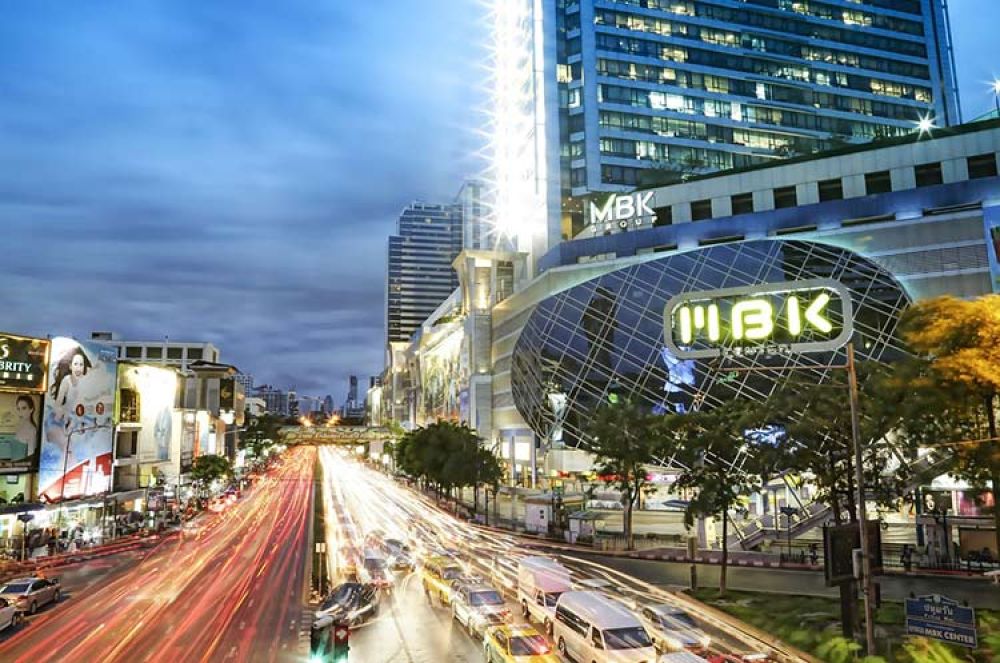

The MBK Mall or Mahboonkrong Center, located in the heart of Bangkok, Thailand, has been an integral part of the city's shopping and tourism experience for over three decades. Opening its doors in 1985, MBK was one of the largest shopping malls in Asia, offering a unique and diverse shopping experience that drew both locals and tourists alike. Its inception was a reflection of Thailand's economic boom and rapid urban development, which contributed to Bangkok becoming a major Southeast Asian tourist destination.
In its early years, MBK quickly became famous for its amalgamation of products, ranging from electronics to fashion, and its eight floors packed with over 2,000 shops. It offered a one-stop destination for shopping, entertainment, and dining, which was relatively new to Thailand at that time. The mall's popularity among tourists was buoyed by its proximity to other shopping districts and accessibility via the BTS Skytrain, which stops directly at National Stadium, making MBK easily reachable for anyone exploring Bangkok.
As the years progressed, MBK underwent several renovations to keep up with the evolving retail landscape and the growing competition from newer, more contemporary malls. Despite these challenges, MBK has retained its popularity due to its reputation for affordable prices, a maze-like structure that offers an adventurous shopping experience, and an extensive selection of merchandise.
MBK is not just about retail shopping; it’s a cultural experience. Tourists flock to its floors that specialize in Thai handicrafts and souvenirs on the ground floor, while upper-level floors cater to those interested in electronics and mobile phones. The fourth floor, often referred to as the IT plaza, is well-known for its collection of inexpensive tech gadgets and mobile phone accessories. Furthermore, the mall also features a food court offering a wide variety of Thai and international cuisines, a cinema complex, and entertainment zones.
MBK Center has played a significant role in Bangkok's tourism industry. It is often listed as a must-visit shopping destination in travel guides and on tourism websites. It has successfully marketed itself as a place where visitors can experience shopping in Bangkok's bustling city atmosphere at relatively low prices, which is a significant draw for tourists on a budget.
Moreover, MBK has capitalized on tourism trends by hosting events, Thai cultural shows, and seasonal promotions to keep attracting visitors. The center also provides tourist-friendly services such as a tourist lounge, VAT refund for tourists, and a "tourist discount card" that offers special discounts—a clear nod to its importance within the tourism sector.
In recent years, there has been a shift in tourism trends with a rise in experiential and cultural tourism. Visitors are increasingly seeking authentic experiences, and in response, MBK has incorporated more cultural elements into its offerings. Pop-up markets featuring traditional Thai handicrafts and local artisans can often be found within the mall, providing a platform for traditional Thai culture amidst the modern retail environment.
Additionally, with the growth of online shopping, MBK has adapted by improving the shopping experience with apps and providing digital maps that ease navigation through its labyrinthine structure. It leans on the dichotomy of presenting a traditional market-style atmosphere with modern technological conveniences, blending the old with the new to maintain its appeal in a rapidly changing tourism landscape.
In conclusion, MBK Center has been a staple of Bangkok's shopping scene, making it an indispensable part of the city's identity for tourists. Despite the ebbs and flows of economic changes and shifts in tourist trends, MBK remains a beloved destination for those seeking to experience the vibrancy and diversity of Bangkok's retail world.